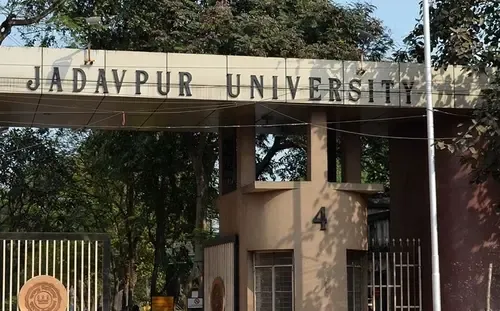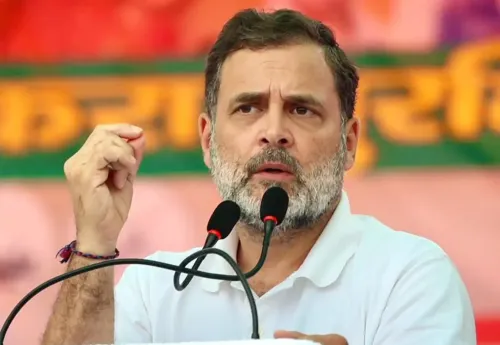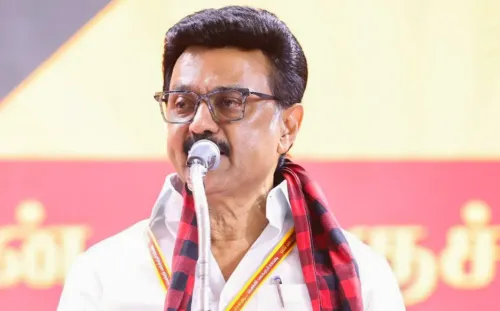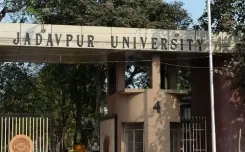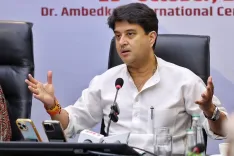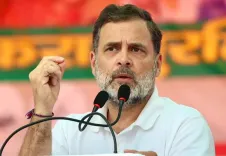Did Rahul Gandhi Just Expose 'Match-Fixing' in Maharashtra Elections?
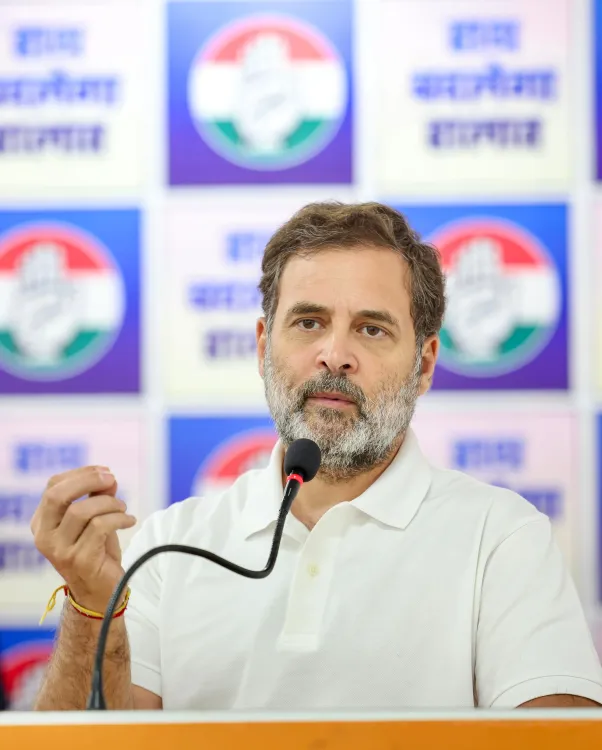
Synopsis
Key Takeaways
- Claims of electoral manipulation are central to Gandhi's criticism of the BJP.
- The alleged increase in bogus voters raises significant concerns.
- Gandhi's call for transparency resonates with the need for democratic integrity.
- Suspicion over voter turnout figures indicates potential electoral malpractice.
- Voter rolls and evidence should be accessible to strengthen democracy.
New Delhi, June 7 (NationPress) The Leader of Opposition (LoP) in the Lok Sabha, Rahul Gandhi, has sharply criticized the BJP, accusing the party of having "match-fixed" the 2024 Maharashtra Assembly elections to achieve victory through extensive electoral manipulation.
In a post on X, LoP Gandhi stated, "How does one steal an election? The Maharashtra Assembly elections in 2024 serve as a model for how to rig democracy."
In a pointed opinion piece published in a national newspaper, Gandhi outlined what he called a "step-by-step playbook" utilized by the BJP to erode the democratic framework in Maharashtra.
He detailed, "Step 1: Manipulate the panel for appointing the Election Commission. Step 2: Introduce fictitious voters onto the roll. Step 3: Inflate voter turnout figures. Step 4: Focus on fraudulent voting precisely where the BJP needs to secure wins. Step 5: Conceal the evidence," accompanied by an excerpt of his article.
Gandhi noted, "It is evident why the BJP resorted to such desperation in Maharashtra. However, rigging is akin to match-fixing -- the team that cheats may win, but it undermines institutions and erodes public trust in the outcomes," he emphasized.
The Congress leader reiterated concerns he raised during his February 3 speech in Parliament and at a press conference, expressing his apprehensions regarding the integrity of the electoral process.
He asserted that while doubts about electoral integrity have existed in the past, the scale of the alleged rigging in the 2024 Maharashtra Assembly elections is both notably excessive and conspicuous.
Despite attempts to cover it up, he stated, "Evidence has surfaced from official statistics, independent of any unofficial sources."
The Mahayuti alliance, which includes the BJP, the Eknath Shinde-led Shiv Sena, and Ajit Pawar's NCP, achieved a significant victory in the November elections, while the Opposition Maha Vikas Aghadi (MVA) -- comprising the Congress, Uddhav Thackeray-led Shiv Sena (UBT), and Sharad Pawar's NCP (SP) -- was reduced to merely 50 seats.
Gandhi opened his article by referencing the changes made in 2023 to the Election Commissioners Appointment Act, which substituted the Chief Justice of India on the selection committee with a Union Minister.
This alteration, he contended, shifted the balance of power in favor of the BJP.
"The decision to replace a Cabinet minister with the Chief Justice of India on the selection committee raises serious questions," he wrote, adding, "Ask yourself, why would someone go out of their way to eliminate a neutral arbiter from a crucial institution? The question itself reveals the answer."
He also raised concerns about a suspicious increase in the number of registered voters. According to Gandhi, Maharashtra's electorate expanded from 8.98 crore in 2019 to 9.29 crore ahead of the 2024 Lok Sabha elections -- a five-year increase of 31 lakh.
However, he claimed that in the brief period between the Lok Sabha and Assembly elections, the number surged by an additional 41 lakh, reaching 9.70 crore.
Gandhi expressed skepticism over the Election Commission's treatment of voter turnout figures, stating, "The polling turnout at 5 p.m. was 58.22 percent. Yet, even after voting closed, turnout continued to climb. The final turnout was reported only the following morning at 66.05 percent."
"This unprecedented increase of 7.83 percentage points is equivalent to 76 lakh voters -- significantly higher than previous Vidhan Sabha elections in Maharashtra," he remarked.
He questioned how such a substantial number of additional votes could be cast post-5 p.m., particularly when no extended voting was observed.
LoP Gandhi cited data indicating that most of the added voters were concentrated in approximately 12,000 booths across 85 constituencies where the BJP had underperformed in the previous Lok Sabha elections.
"That averages out to over 600 voters at each booth after 5 p.m. Assuming each voter requires a minute to cast their vote, voting would have to continue for 10 hours. Since that never occurred, it raises the question -- how were the extra votes recorded?" he inquired, noting that the NDA won a majority of those 85 seats.
While the Election Commission termed the turnout increase as a "positive trend in youth participation," Gandhi dismissed it as "a tragic joke."
He criticized the EC's refusal to disclose photographic voter rolls and its dismissive stance towards Opposition concerns.
Moreover, he highlighted a change in the 1961 Conduct of Election Rules -- Section 93(2)(a) -- which limits access to CCTV footage and electronic records.
"Voter rolls and CCTV footage should be utilized to bolster democracy, not hidden away," Gandhi asserted, adding, "The citizens of India deserve assurance that no records have been or will be discarded."
In conclusion, LoP Gandhi cautioned that similar tactics could be employed in other states. "All concerned citizens must examine the evidence. Judge for themselves. Demand accountability. Because the match-fixing seen in Maharashtra may soon reach Bihar, and subsequently anywhere the BJP is falling short," he warned.
"Match-fixing in elections is a toxin for any democracy," he concluded.

